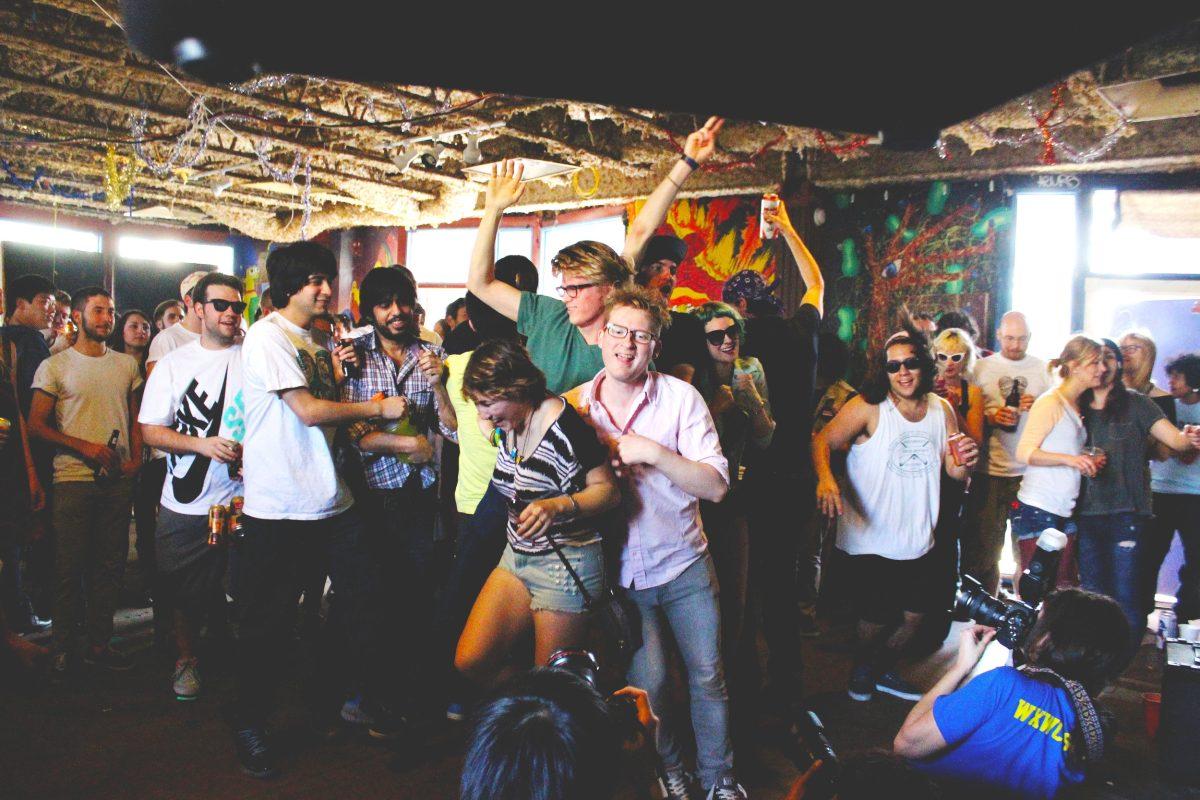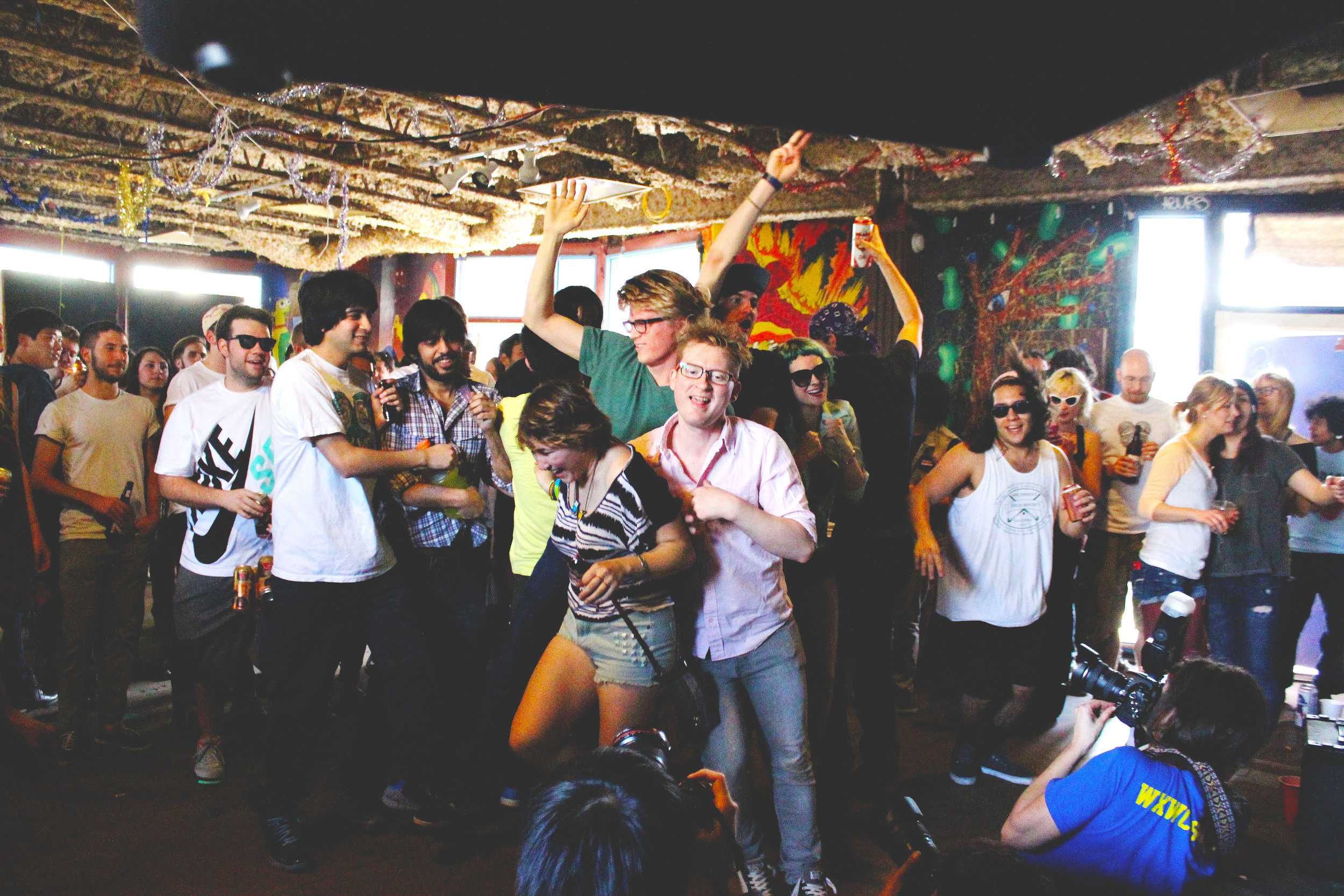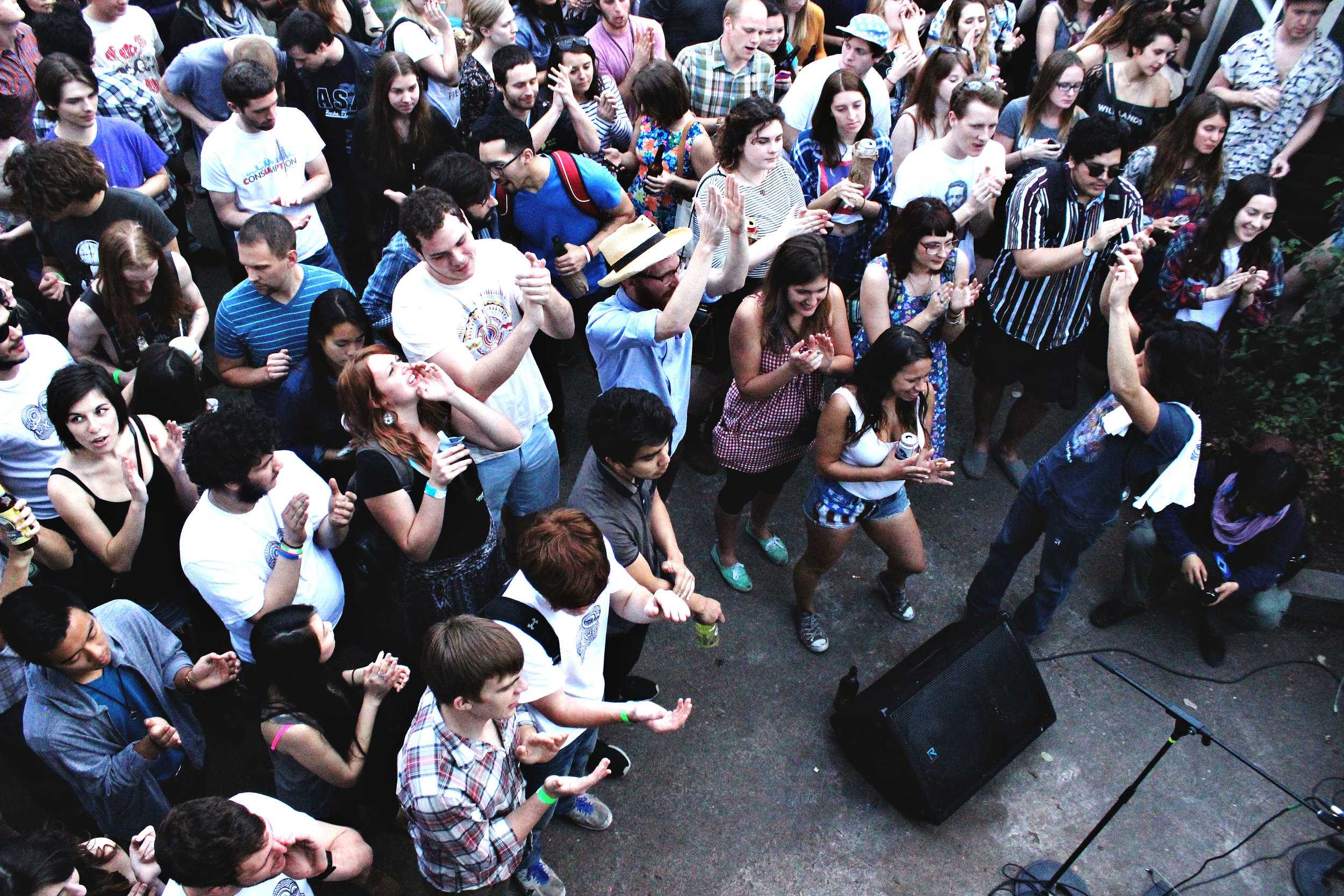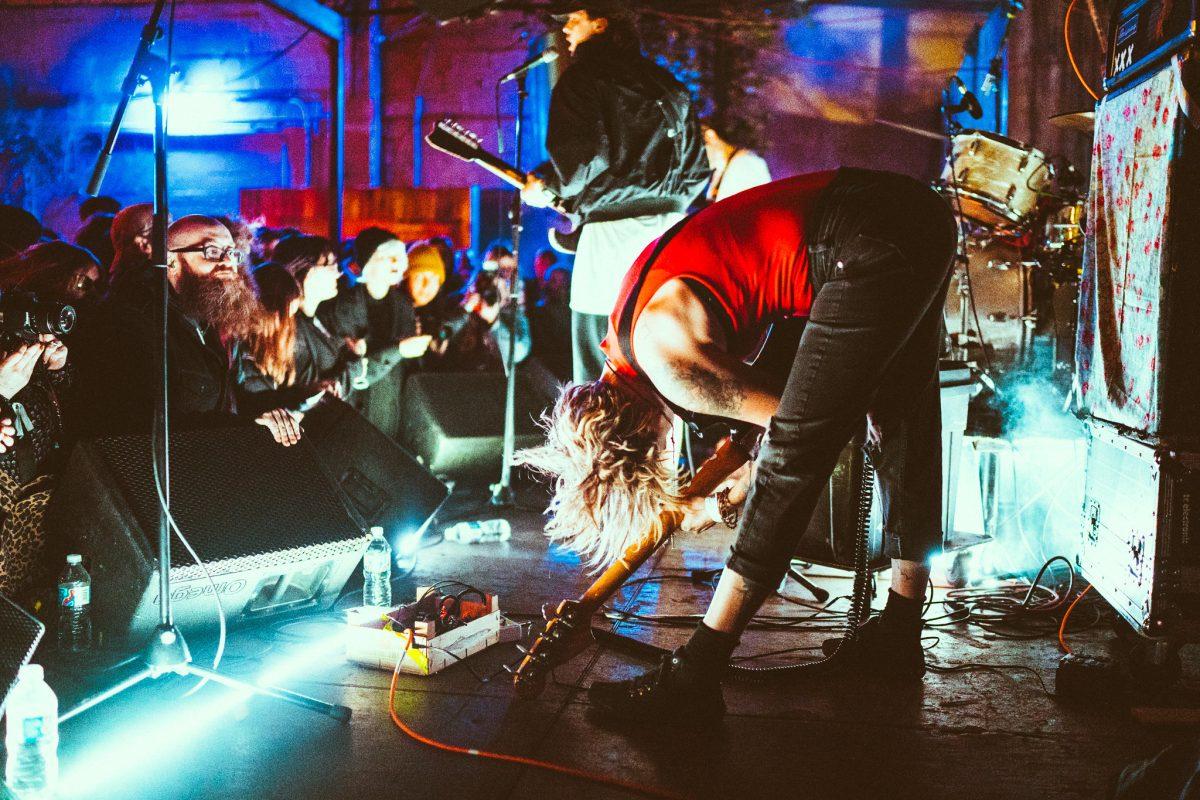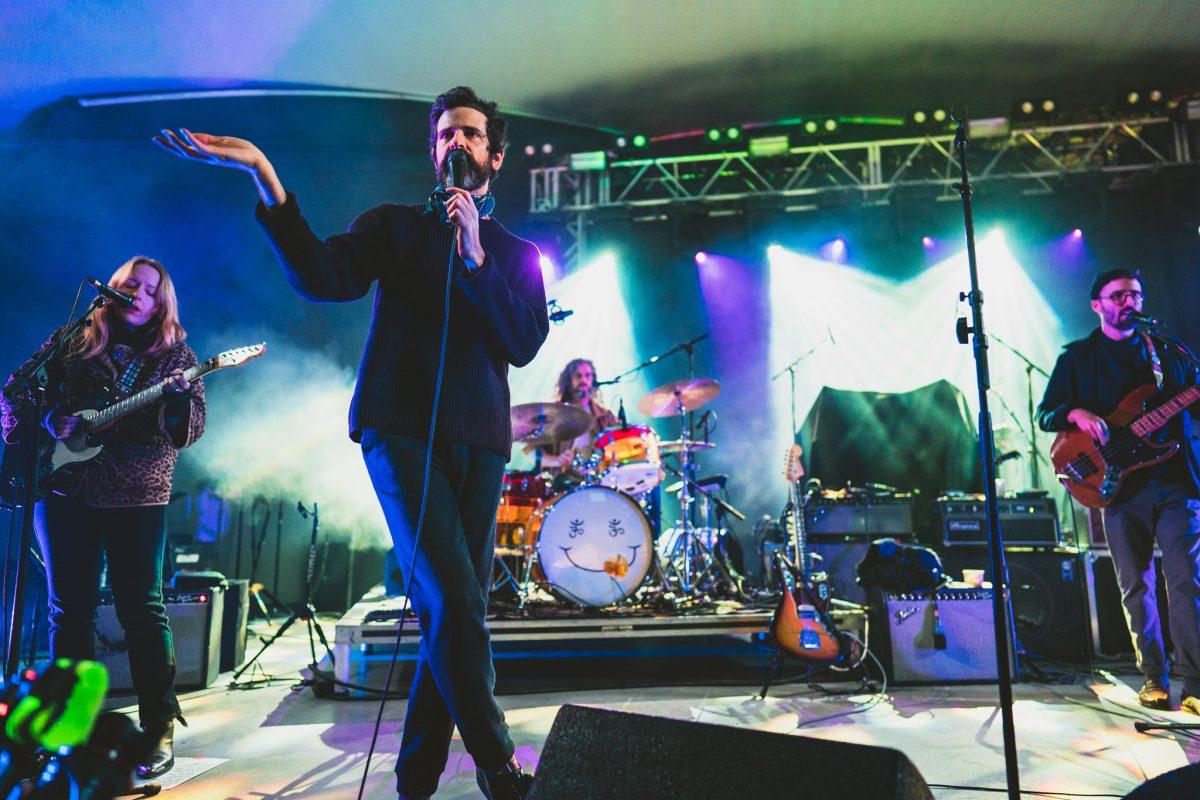Editor’s Note: This story originally appeared in Digital Issue V.
For students at the University of Texas at Austin, West Campus is more than a place to rent an apartment: it’s a way of life. For years, fraternities and sororities have welcomed A-list rappers and up-and-coming bands to West Campus as part of their Round Up festivities, while co-ops have packed their own humble rooms with the city’s hottest local acts. But for the past two years, residents have struggled to deal with the West Campus Music Ordinance, which threatens the future of live music in one part of the “Live Music Capital of the World.”
Story by Kaitlin Reid and Amy Fennie
Photos by Tess Cagle
West Campus residents have grown increasingly frustrated with the strict enforcement of the ordinance since its implementation in the fall of 2016. The ordinance prohibits outdoor music within 100 feet of residential areas, limits volume to 75 decibels and forbids any sort of amplified music after 10 p.m. As a result, the West Campus music scene has struggled to accommodate these regulations while still trying to preserve Austin’s cherished live music identity.
Many students, such as Pi Kappa Alpha fraternity president J.D. Swancoat, think these restrictions are inappropriate for West Campus, considering the area is home to predominantly college students. “I think 75 decibels is probably a little bit low, especially for a college area, and the ‘10:30 p.m.’ thing is a little early,” he says. “But at the end of the day, the police and fire department are just doing their jobs. I think the ball is in the court of the city and the city council, and not the police and the fire department.”
Jake Hiebert, co-founder of West Campus Block Party and drummer in local band TOMA, takes a harder stance on the issue, suggesting non-collegiate West Campus residents move elsewhere if they have a problem with the noise. “I think it is a little ridiculous for people to think that parties around a giant school like UT are going to stop, or get stopped,” he says. “I understand that people living in the West Campus area want some peace and quiet—so move to Bastrop.”
A crowd moshes during a show at 21st Street Co-Op.
Planning a live music event in West Campus requires a lot more than booking bands and buying some red Solo cups. In addition to the ordinance, event organizers have to grapple with capacity restrictions, underage drinking and other general security concerns. As a result, these events become logistical nightmares, with many concerts being shut down before a performer even steps onstage.
Every year Round Up, a longstanding UT tradition where Greek organizations host events with live music, goes through these processes and setbacks. Previous Round Up events have featured prominent artists such as Migos, Cherub and Travis Porter. But the West Campus ordinances jeopardize the future of such events.
ORANGE’s anonymous survey of 172 UT students across 50 organizations reflected dissatisfaction with this year’s Round Up experience. Many respondents blamed the Austin Fire Department and the Austin Police Department for “having no chill” and for prematurely shutting down events.
During Round Up, many fraternities hire security to enforce capacity standards and underage drinking restrictions. They also obtain the necessary permits to host the events and invest more than $20,000 in production and performers. So, unsurprisingly, many students find it irritating that one small misstep can shut down an entire event—often before the artist performs.
“When I was a freshman four years ago, [Round Up] was about walking around and seeing artists at different places and meeting new people,” reflected one anonymous survey respondent. “Now it’s just a fight to get into one place with the hope that maybe it won’t get shut down.”
At French House Co-op, a crowd forms around a main stage where local band, Red One Blue Two, is performing.
Although many think of Round Up as a giant, drunken frat party, some students attend solely for the live music experience and not the party atmosphere. “There are still students like myself who are genuinely excited for the unique opportunity to see huge acts for free,” one UT sorority member said. “For me, Round Up isn’t about partying. It’s about getting the chance to see great live music in my own backyard. Like, where else does that happen?”
Cody Crites, director of the Pearl Street Co-op, also points out that the city makes a lot of money off these regulations. “These live music events are a big part of the culture of West Campus, and of Austin,” he says. “It’s basically turned legitimate events into illegal activity that the city can fine these establishments for.”
UT Student Government president Kevin Helgren suggests a conversation needs to happen between UT students, West Campus residents and Austin City Council in order to reach a solution that pleases all parties. He wants the UT student body to recognize him as their voice, which is especially important during a reelection year for City Council representatives. “Just so the student body is aware, Binna and I are in their corner,” he says. “If we get the sense that the overwhelming majority of the student body says, ‘Hey, this noise ordinance is problematic and we want people to advocate for us,’ then we will be those people to advocate for them.”
Without an advocate, West Campus residents will continue to struggle to partake in Austin’s live music culture while also satisfying the ordinance. It certainly won’t be the end of West Campus, and it probably won’t be the end of parties or other events there. Still, many students agree that some neighborhoods just aren’t the same when they’re quiet.































